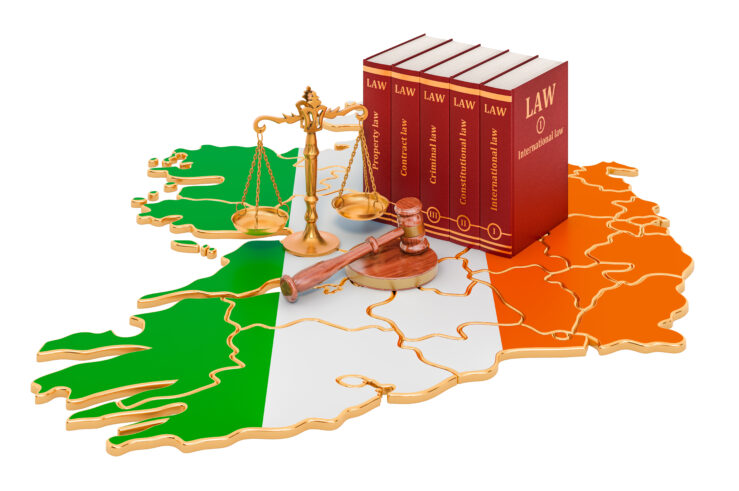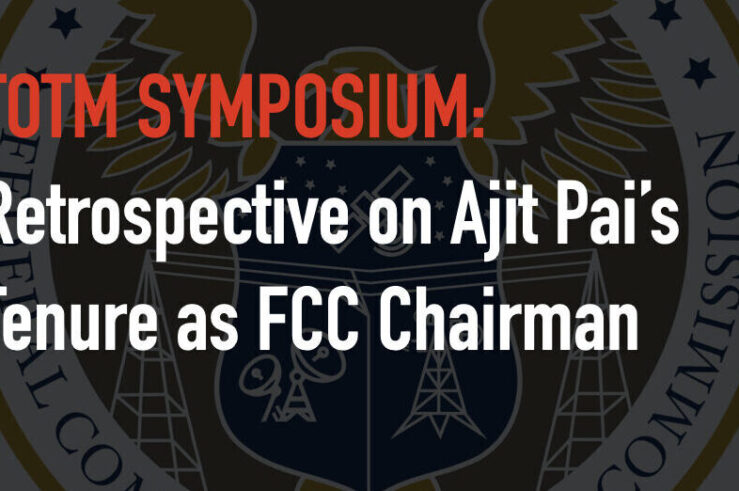Showing archive for: “Privacy & Data Security”
Breaking Down House Democrats’ Forthcoming Competition Bills
Democratic leadership of the House Judiciary Committee have leaked the approach they plan to take to revise U.S. antitrust law and enforcement, with a particular focus on digital platforms. Broadly speaking, the bills would: raise fees for larger mergers and increase appropriations to the FTC and DOJ; require data portability and interoperability; declare that large ... Breaking Down House Democrats’ Forthcoming Competition Bills
The Digital Markets Act Shouldn’t Mandate Radical Interoperability
Despite calls from some NGOs to mandate radical interoperability, the EU’s draft Digital Markets Act (DMA) adopted a more measured approach, requiring full interoperability only in “ancillary” services like identification or payment systems. There remains the possibility, however, that the DMA proposal will be amended to include stronger interoperability mandates, or that such amendments will ... The Digital Markets Act Shouldn’t Mandate Radical Interoperability
What You Need to Know About the EU’s New AI Regulation
The European Commission this week published its proposed Artificial Intelligence Regulation, setting out new rules for “artificial intelligence systems” used within the European Union. The regulation—the commission’s attempt to limit pernicious uses of AI without discouraging its adoption in beneficial cases—casts a wide net in defining AI to include essentially any software developed using machine ... What You Need to Know About the EU’s New AI Regulation
Irish Decision Will Raise Stakes to Resolve Transatlantic Data Trade
We can expect a decision very soon from the High Court of Ireland on last summer’s Irish Data Protection Commission (“IDPC”) decision that placed serious impediments in the transfer data across the Atlantic. That decision, coupled with the July 2020 Court of Justice of the European Union (“CJEU”) decision to invalidate the Privacy Shield agreement ... Irish Decision Will Raise Stakes to Resolve Transatlantic Data Trade
The FTC Did Not ‘Fumble the Future’ in Its Google Search Investigation
Politico has released a cache of confidential Federal Trade Commission (FTC) documents in connection with a series of articles on the commission’s antitrust probe into Google Search a decade ago. The headline of the first piece in the series argues the FTC “fumbled the future” by failing to follow through on staff recommendations to pursue ... The FTC Did Not ‘Fumble the Future’ in Its Google Search Investigation
The Problem of Data Property Rights
Policy discussions about the use of personal data often have “less is more” as a background assumption; that data is overconsumed relative to some hypothetical optimal baseline. This overriding skepticism has been the backdrop for sweeping new privacy regulations, such as the California Consumer Privacy Act (CCPA) and the EU’s General Data Protection Regulation (GDPR). ... The Problem of Data Property Rights
Chairman Pai’s Organizational Legacy
One significant aspect of Chairman Ajit Pai’s legacy is not a policy change, but an organizational one: establishment of the Federal Communications Commission’s (FCC’s) Office of Economics and Analytics (OEA) in 2018. Prior to OEA, most of the FCC’s economists were assigned to the various policy bureaus, such as Wireless, Wireline Competition, Public Safety, Media, ... Chairman Pai’s Organizational Legacy
Building the Digital Future: Can the EU Foster a Dynamic and Crime-Free Internet?
The European Commission has unveiled draft legislation (the Digital Services Act, or “DSA”) that would overhaul the rules governing the online lives of its citizens. The draft rules are something of a mixed bag. While online markets present important challenges for law enforcement, the DSA would significantly increase the cost of doing business in Europe ... Building the Digital Future: Can the EU Foster a Dynamic and Crime-Free Internet?
It’s Not So Simple Who Owns “Your” Data
What kind of regulation? Treating digital platforms like public utilities won’t work, Petit argues, because the product is multidimensional and competition takes place on multiple margins (the larger theme of the book): “there is a plausible chance that increased competition in digital markets will lead to a race to the bottom, in which price competition ... It’s Not So Simple Who Owns “Your” Data
We Need to Talk About Privacy Absolutism
Privacy absolutism is the misguided belief that protecting citizens’ privacy supersedes all other policy goals, especially economic ones. This is a mistake. Privacy is one value among many, not an end in itself. Unfortunately, the absolutist worldview has filtered into policymaking and is beginning to have very real consequences. Readers need look no further than ... We Need to Talk About Privacy Absolutism
Congress Considers Privacy in the Context of COVID-19 and Gets it All Wrong
The COVID-19 crisis has recast virtually every contemporary policy debate in the context of public health, and digital privacy is no exception. Conversations that once focused on the value and manner of tracking to enable behavioral advertising have shifted. Congress, on the heels of years of false-starts and failed efforts to introduce nationwide standards, is ... Congress Considers Privacy in the Context of COVID-19 and Gets it All Wrong
The Earn IT Act and the Institutional Limits of Congress
As the initial shock of the COVID quarantine wanes, the Techlash waxes again bringing with it a raft of renewed legislative proposals to take on Big Tech. Prominent among these is the EARN IT Act (the Act), a bipartisan proposal to create a new national commission responsible for proposing best practices designed to mitigate the ... The Earn IT Act and the Institutional Limits of Congress











